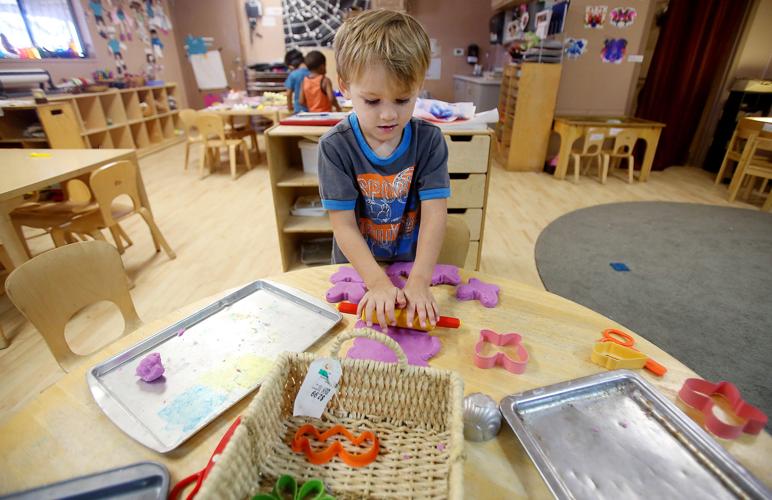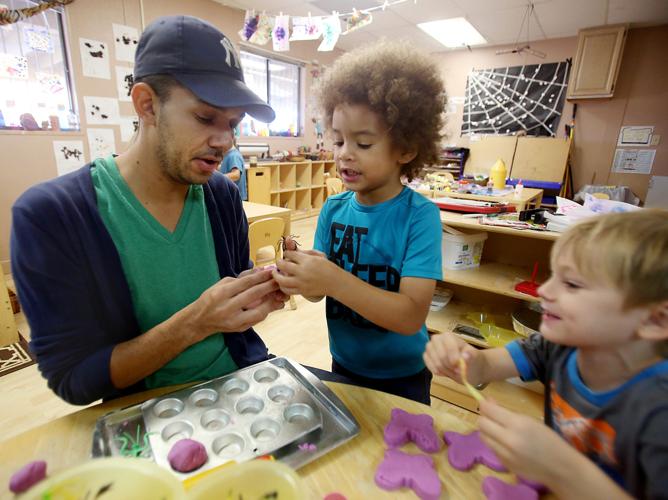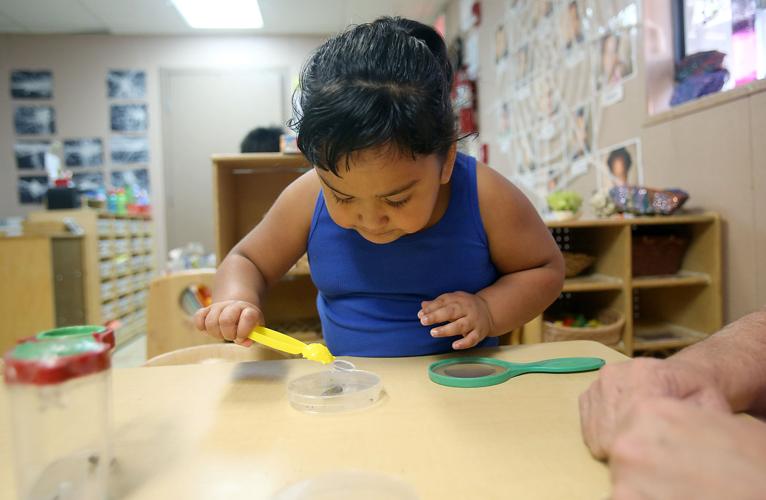A group of early childhood education advocates is looking to make high-quality preschool programs accessible and affordable for Tucson families.
The organization, Strong Start Tucson, is working to gather support for an initiative that would pay for preschool scholarships using money generated by a proposed half-cent city sales tax.
Pima County preschool programs charge an average of $7,200 a year, putting the early learning experience that research has shown to be critical out of reach for many families in a city where the median household income is about $37,000 a year.
“Every child in Tucson should have access to high-quality preschool because it is the best predictor of future success in school and in life,” said Strong Start Tucson Chairwoman Penelope Jacks.
“When kids have a high quality preschool experience, their chances of succeeding all throughout their education goes up dramatically — they’re much more likely to graduate high school, they’re much less likely to be incarcerated later in life. It’s just in every way a boon.”
While a high-quality preschool program has proven to be beneficial for children, communities that get behind such an effort prosper as well, said Jacks, who previously served as director of the Southern Arizona Children’s Action Alliance before retiring.
“This would really set Tucson apart from other cities as a place where we value our children, where we provide for our children and where we are creating a future for them,” she said, adding that would make the city more attractive to businesses, spurring economic growth.
Could this pass?
According to Jacks, the support is there.
Strong Start Tucson has conducted polls showing vast support for a half-cent sales-tax increase and high levels of concern about all children having access to high-quality preschools, Jacks said.
“We’re confident the support is there and past votes by Tucsonans show they’re willing to spend for education and to give every child an opportunity,” she said. “Many have asked us why we are not doing this as a statewide initiative, and it’s because we know Tucson voters are more committed to children than the rest of the state has shown itself to be.”
Jacks added that while Tucson would be the first Arizona city to take up such an effort, it has been successfully done in other places around the country, including Denver and San Antonio.
The half-cent sales tax being proposed by Strong Start Tucson would generate about $50 million a year — money that would be used to provide scholarships to as many as 8,500 children living within the city limits, said Jacks.
With an estimated 16,500 3-, 4- and 5-year-olds eligible to attend preschool, that would make a significant impact.
Who is eligible?
Every family living within the city limits with children who have not entered kindergarten would be eligible. Priority would be given to children ages 3 to 5 years old, and scholarships would be based on income and family size.
Children living in poverty could receive the full cost of tuition; other families could be asked to pay tuition that is a percentage of their income.
Scholarship amounts have not yet been decided, but the idea is that families will pay no more than 10 percent of their annual income, with the majority paying 2 to 4 percent .
How does it all work?
To get the sales tax initiative on the ballot in November 2017, the group will first have to formally file with the city of Tucson, which it plans to do shortly after the general election on Nov. 8.
Strong Start Tucson will have to collect nearly 10,000 signatures by July 6, but it is planning to collect twice as many. As long as enough valid signatures are collected, the initiative will go to voters for approval next fall.
If approved, the half-cent sales tax would cost the average city household about $36 a year.
For more information about Strong Start Tucson or to get involved with the initiative, go to strongstarttucson.org
What if I need help paying
for preschool?
It won’t be known until next summer whether Strong Start Tucson can gather enough signatures to get its half-cent sales tax initiative on the ballot, but there are resources — albeit limited — for families in need now.
First Things First is a voter-approved initiative funded by tobacco tax revenues that works to help Arizona children ages 5 and younger receive quality education, health care and family support.
In 2015, more than 2,600 Pima County children received scholarships through First Things First’s Quality First program.
The organization has also worked to improve the quality of Arizona child-care centers, offering training and education incentives.
But the demand is great and the endeavor to increase access is not something that First Things First can do alone, says Jessica Brisson, FTF senior director of the southeast regional area.
“When tuition for quality early learning programming is similar to paying for college or making a mortgage payment, affordability for families with young children needing care is a significant issue,” Brisson said.
“It’s a significant workforce issue as well — if families can’t afford to access care and continue working, that hinders a strong workforce and a strong community.
“That’s why we really welcome a community conversation around young children have access to quality care and education.”
In addition to Quality First scholarships, the Child Care Resource and Referral program will help parents find the right child-care center to fit each family’s needs, free of charge.






